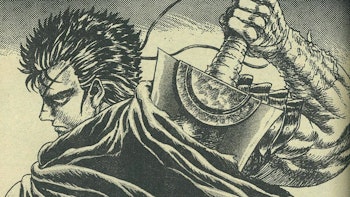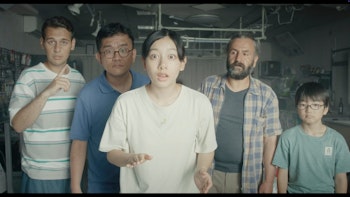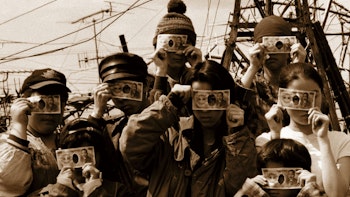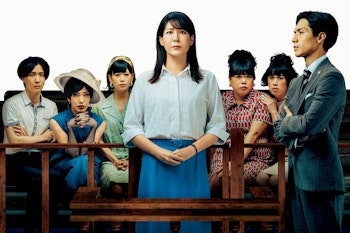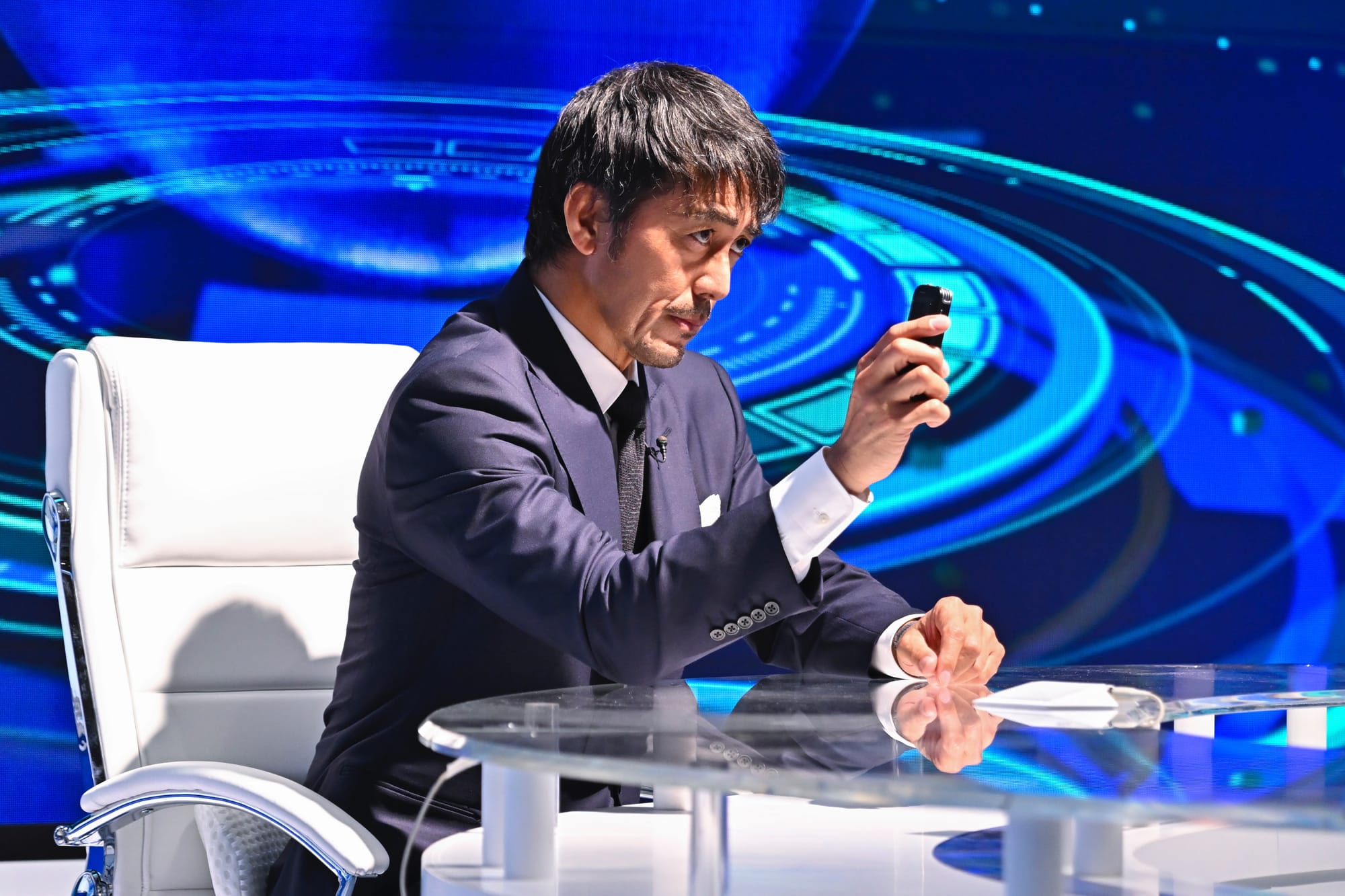
In the wake of domestic political scandals and questions of how to approach journalism in a world increasingly doing away with its relationship with the truth, a number of Japan’s most critically-acclaimed movies and TV shows have centered on those dedicating themselves to uncovering the facts of our modern society. The award-winning 2019 film The Journalist is perhaps the most prominent of these, adapted the book of the same name while exploring the transactional relationship between press and journalists and the attempts to uncover political scandal within the Japanese media landscape.
It got more people thinking about the role of journalism in the country, fueling a number of new drama, movies and books that touch on police power, political corruption, and the reporting class. News Anchor (Japanese title: Caster) follows in this trajectory, albeit to an exaggerated extreme.
The series is part of TBS’ Spring drama lineup and their most ambitious, airing in their prime Sunday-evening slot with veteran Hiroshi Abe (After the Storm, Thermae Romae) playing the titular anchor Soichi Shindo, alongside buzzy actors like Mei Nagano (Cells at Work), Shunsuke Michieda (a Naniwa Danshi idol who played the lead in NTV’s Tale of Young Kindaichi drama), and former Takarazuka Revue Tsukigumi top star Tsukishiro Kanato in her drama debut. And while not attempting to be a commentary on the news, it is taking inspiration from current affairs to explore the idea of what journalism can be.
Shindo is brought into the fictional JBN network to become the new lead presenter of News Gate, building on his career as a social affairs reporter to help revive the fledging news program. Many view it as a show without the gravitas and serious care for breaking stories over light-hearted gossip, causing viewership to fall. On his first day, he sets out his mission: to blow up the show and turn it into something far more meaningful.
News Anchor has its heart in the right place, but can sometimes feel distracted and overstuffed in reaching this goal. The pilot episode has a lot to achieve even in its extended 65-minute runtime. Beyond simply establishing its characters and setting, such as why News Gate is struggling and what dynamic approach Shindo can bring to the program in order to make people take notice, it has to establish the main mystery that this new-look journalism will uncover over its runtime. An overarching mystery which only a true journalist with integrity can uncover.
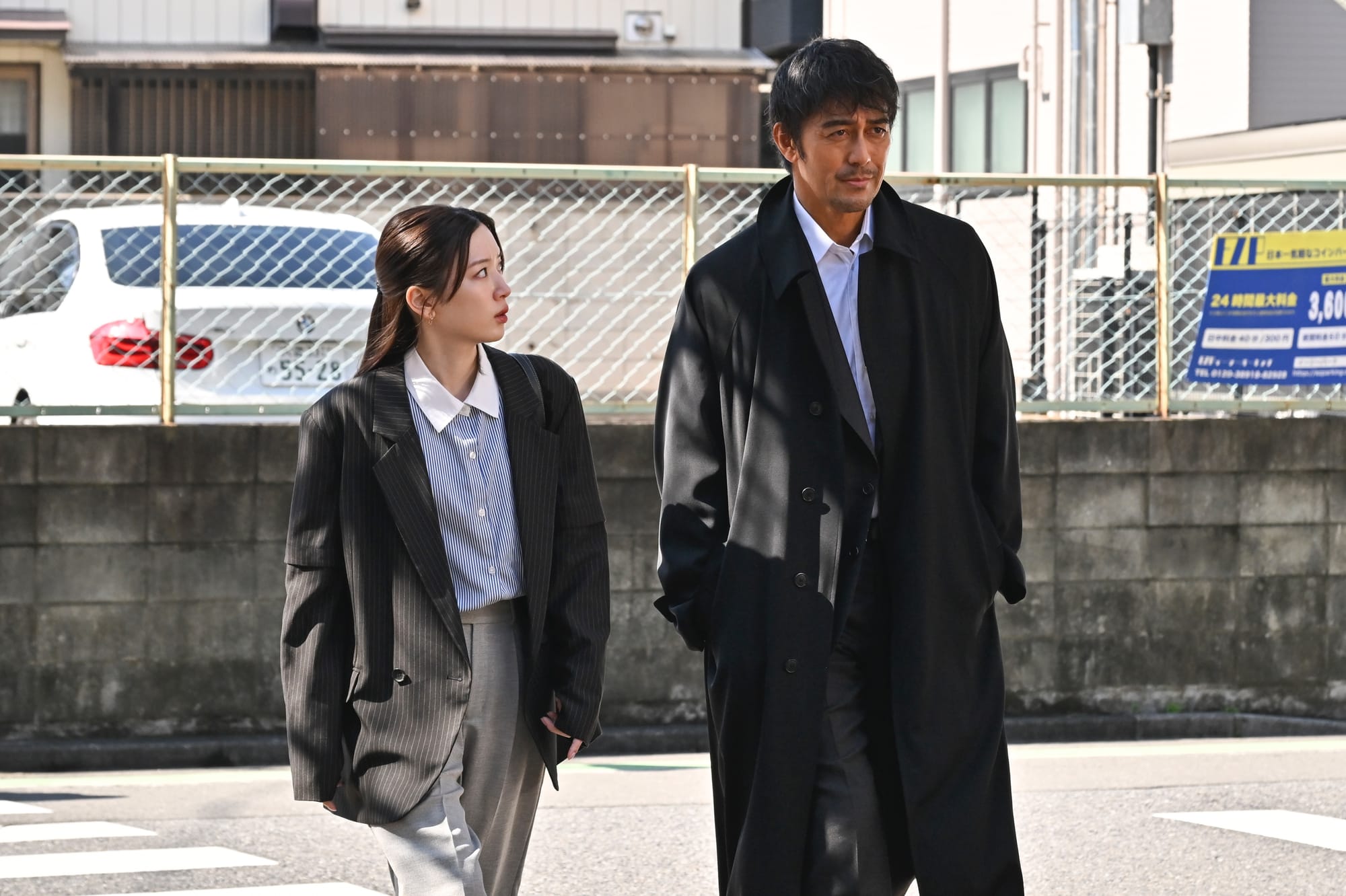
It makes this first episode an emotional whirlpool. There are few actors that could balance the careful pendulum of serious integrity and uncaring contempt Shindo feels towards his work and others like Abe. His dour demeanor makes these split ideals just about believable enough, as he tears down his new colleagues with relentless cruelty while trying to give them something to prove as they chase an opening-night story. A first rehearsal breaks from cue cards and the script to angrily tear into a key staff member acting as a stand-in for the Cabinet Secretary set to give a live interview.
A sudden cancelation when he’s known to be attending a volleyball event puts both Shindo and this same staff-member, AD Yusuke Motohashi (Shunsuke Michieda) to track them down. Revealing a scoop on a story to the Cabinet Secretary and getting a promise to kill the report if he chooses to come and discuss another scandal, he gets a deal to save the interview only for him to come down with a heart attack. But what if there’s yet another story hiding below the surface of this latest incident?
It’s an overly-complex series of events that threatens to derail the show before it even gets started. Journalism is a complex industry, and getting the full report on a news story often has many moving parts. Rarely is it this dramatic, and it often makes it difficult to follow for anyone not already a veteran journalist. There’s an overwhelming amount of things happening seemingly for the case of creating a kinetic opener and getting a cliffhanger for every commercial break, rather than what truly advances the story in a believable manner.
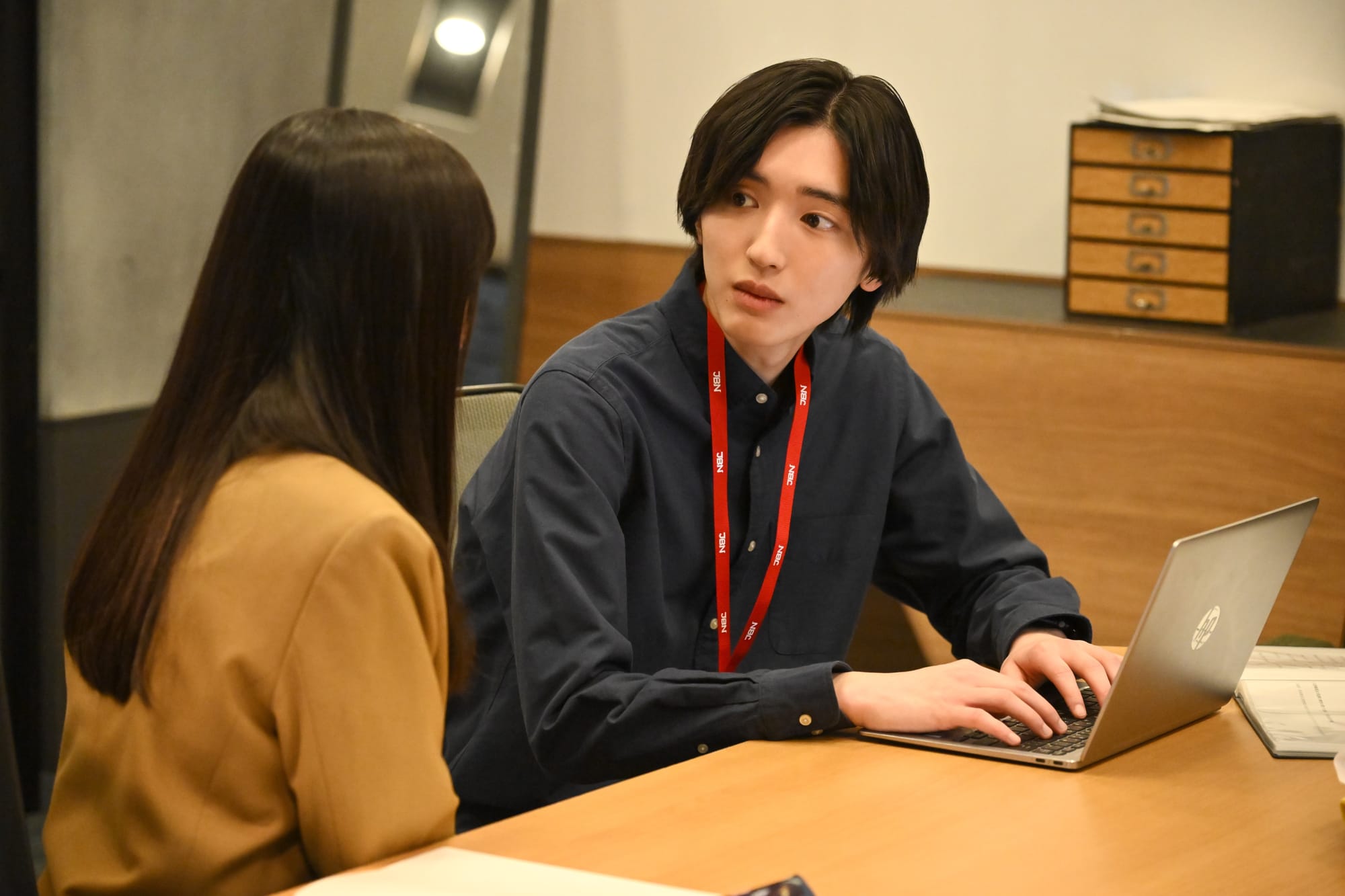
Yet despite all this, there’s a spark that hooks you. While it can at times feel smothered by the events playing out on screen, the connecting tissue stringing audiences along is the reminder of the purpose, if not the process, of journalism. Even if the lengths or methods taken to get a story are often stretching the truth of how the industry works, the reason they go to these lengths and the importance of this work is never undermined or exaggerated.
“You wouldn’t go outside to find the truth for yourself,” asks Shindo in the opening episode. In a later episode, when asked why you would dedicate your life to journalism, the answer is obvious: it’s to make the world you live in a little bit better. While you can claim these are delivered with a dose of sentimentalism, or that they’re rather melodramatic ways of explaining the importance of this work to a general audience, it doesn’t make their contents any less true.
Journalism is a craft that can not only disperse knowledge, but set about the path towards a better society. While people can choose to embrace or reject the truth, and in many cases we can see people weaponizing the manipulation of this information for personal gain, it is still possible to enact change and reform for the better when the truth is revealed.
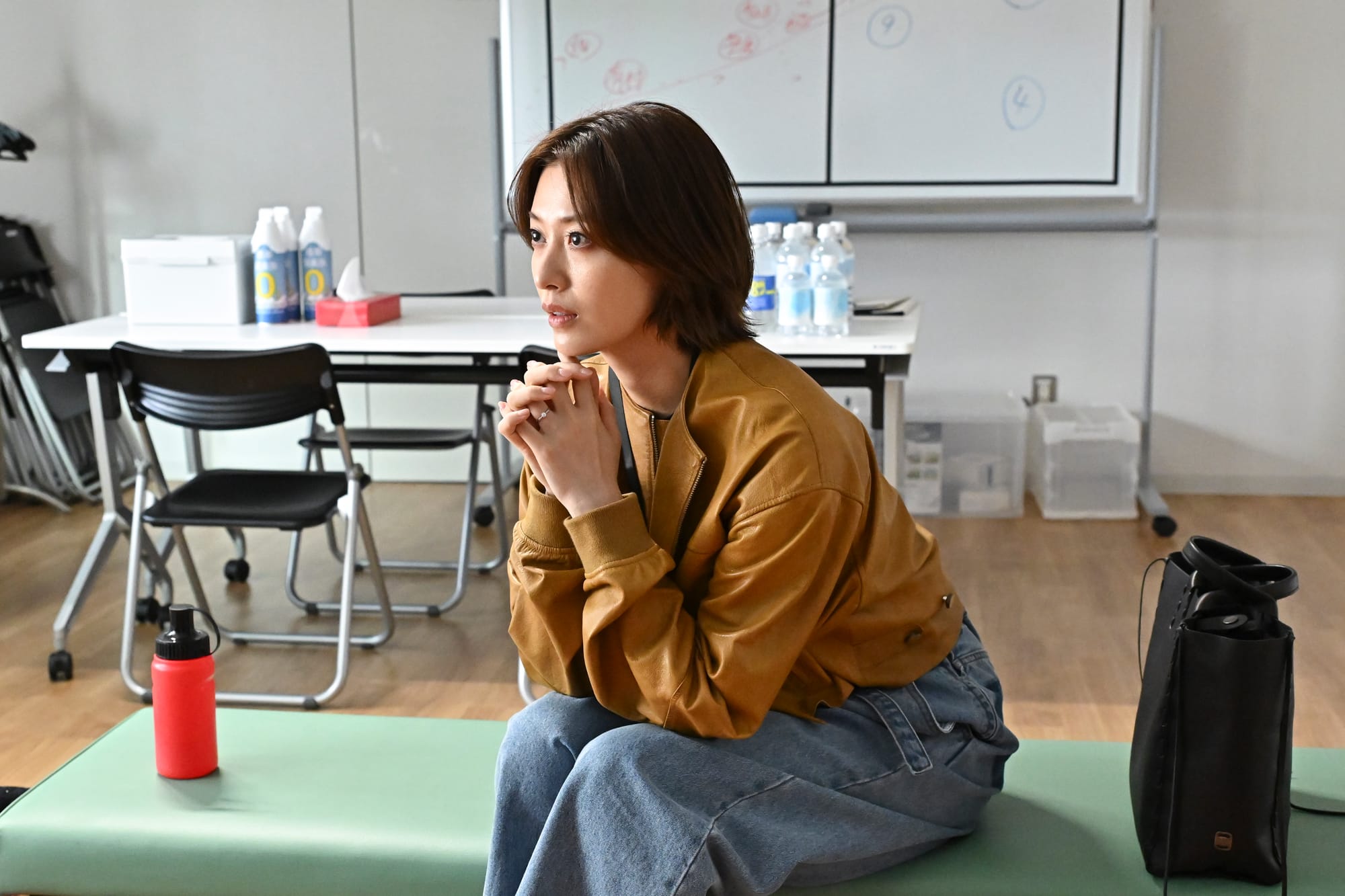
Over the past decade a major debate on the extent of access journalism within the Japanese media has grown, in part because the intent to downplay or obscure reporting on some topics to retain access to major political players led to mistakes in the reporting on the 3.11 earthquake and, more recently, a case where reporters from the Sankei and Asahi Shinbun played mahjong for cash with Kurokawa Hiromu, the head of the Tokyo High Public Prosecutors Office, during COVID-19 emergency declarations.
It’s led to some increased distrust in specific journalistic outlets, but not journalism as an institution in the country. Many see its importance, but question whether the current system can hold people accountable and lead to the sort of investigative journalism that seeks answers. Questions about journalism in Japan in light of these scandals and in the age of the internet have been the fuel behind these current affairs intrigue, even those heavily discussed in the news while being otherwise denied domestic release - one of the documentary nominees at this year’s Oscars was the Japanese film Black Box Diaries, a film by journalist Shiori Ito about a sexual assault case involving herself and Noriyuki Yamaguchi.
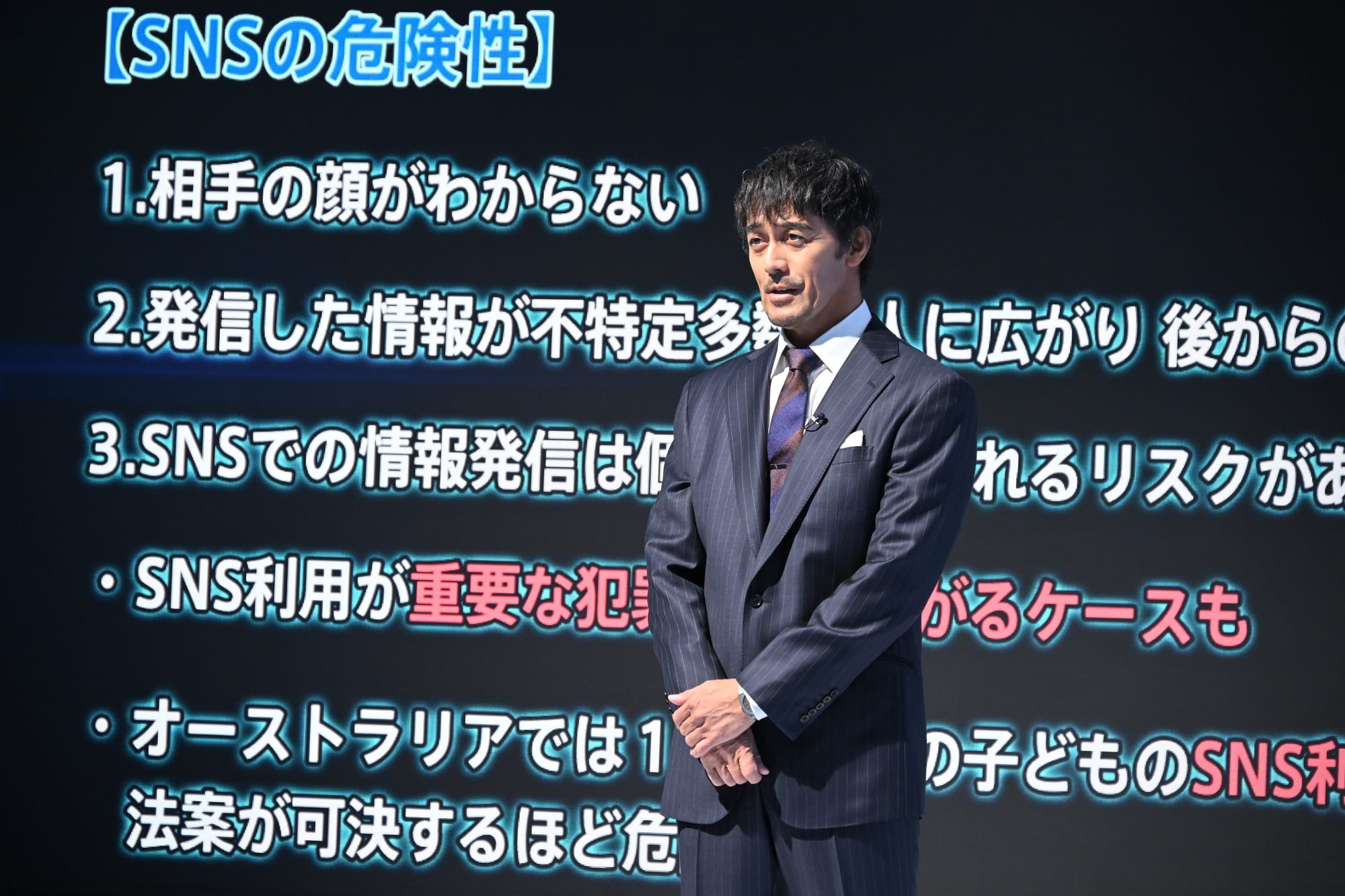
The show even references real life cases in its storylines. Episode 3, a story centered on the discovery of a new type of synthetic cell placed against the backdrop of controversy over fake data mirrors a case from a decade prior. As it wraps up this story, it explores the positive impacts the truth can reveal: rather than solely admonishing the lies told for new funding, it questions whether more could be done to disincentivize the link of results to research grants and how science is funded. Another episode looks at the dangers of social media. A conversation instigated by journalism seeking the truth can also consider how to make society better.
While News Anchor can be overbearing in its dense nature and overlapping storylines, especially in its opening episode, with characters who balance the tightrope between aspiration and detestation, it’s a full-throttled embrace of the power of the truth and journalism that allows this series to shine. Delivered with unapologetic earnestness for the ideals of the craft, the show’s belief in its power for good, coupled with strong acting, is enough to make this a riveting highlight of the season.



